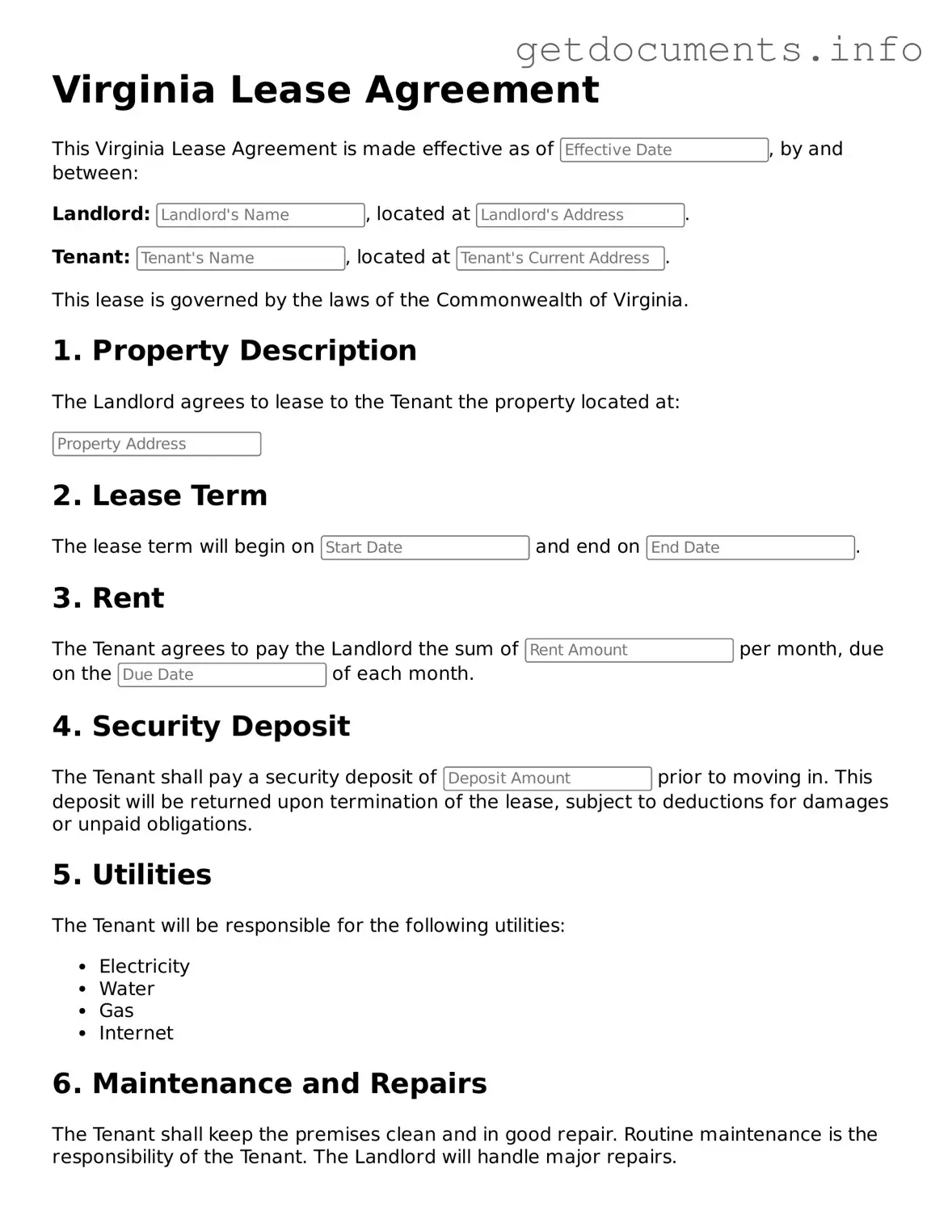Free Lease Agreement Template for Virginia
A Virginia Lease Agreement form is a legal document that outlines the terms and conditions between a landlord and a tenant for renting a residential property in Virginia. This form serves to protect the rights of both parties, ensuring clarity and mutual understanding throughout the lease period. To get started on securing your rental agreement, fill out the form by clicking the button below.
Access Lease Agreement Editor

Free Lease Agreement Template for Virginia
Access Lease Agreement Editor
Got places to be? Complete the form fast
Fill out Lease Agreement online and avoid printing or scanning.
Access Lease Agreement Editor
or
⇩ PDF File
